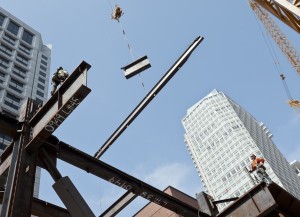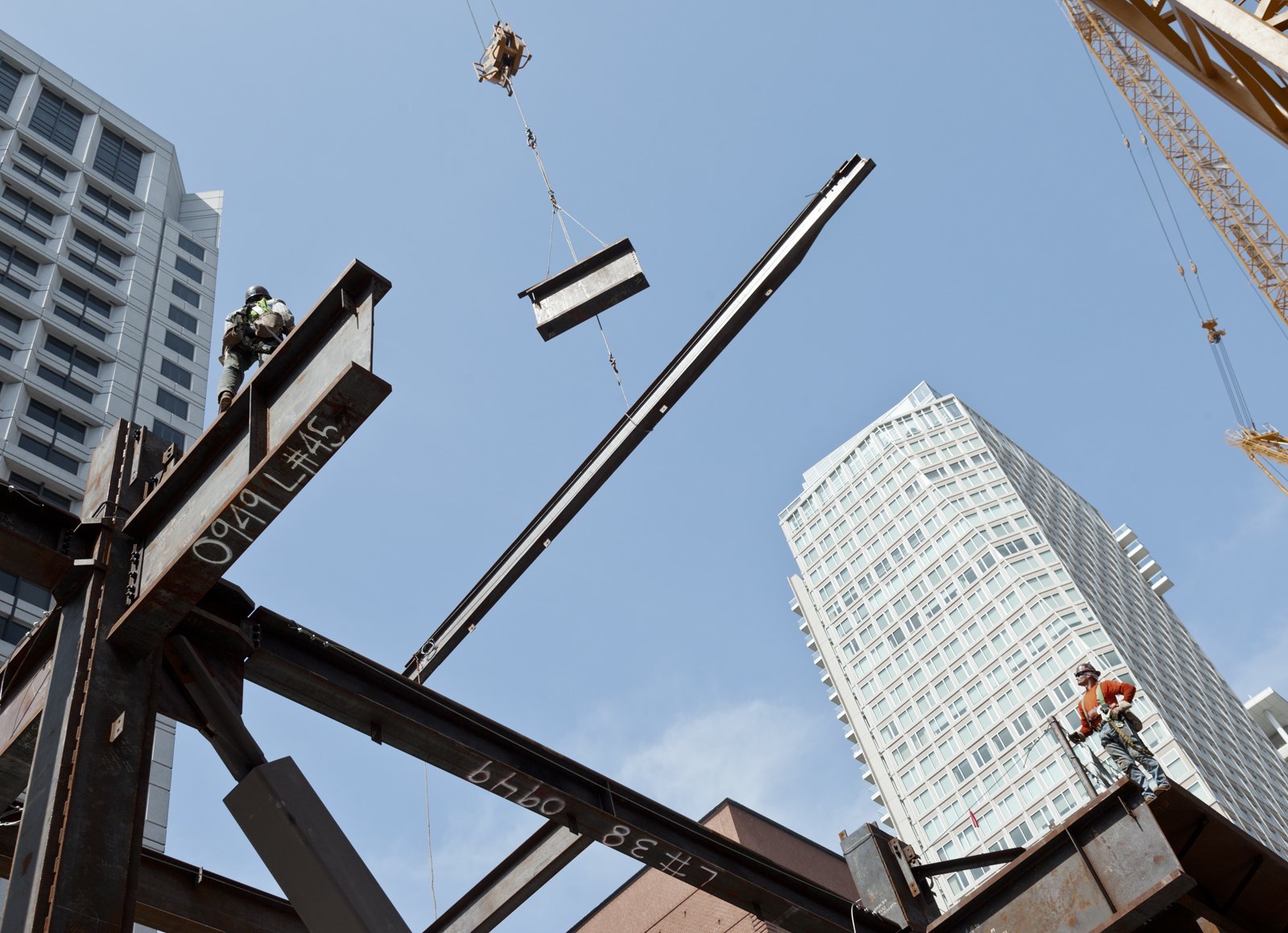Yesterday afternoon, residents of San Francisco gathered in Jessie Square to watch the first major construction
milestone of the San Francisco Museum of Modern Art’s addition: the topping out ceremony. Though attendees leisurely enjoyed food trucks, interactive building blocks and the customary spectacle of placing of the topmost metal bar in a buildings framework, the topping out ceremony brought a crucial question to the forefront: Is the SFMOMA outgrowing San Francisco?

First and foremost is the museum’s attention-grabbing choice in architect. An internationally renowned firm, Snøhetta is in many ways both a progressive and pragmatic selection. According to SFMOMA communications manager Robyn Wise, “SFMOMA chose Snøhetta to design the expanded museum because of [its] ability to create original cultural buildings.” And indeed, she’s right: Snøhetta’s uncanny ability to develop a cultural landmark (best seen in its Oslo Opera House completed in 2007) makes it a worthy choice of any forward-thinking institution. Even better, Snøhetta attracts press, and press attracts donations.
Though in many ways an ideal choice, Snøhetta lacks a connection to the San Francisco area. A Norwegian firm with German-born Craig Dykers standing at the helm of the SFMOMA addition, I am forced to wonder whether Snøhetta will ever be able to fully grasp the idiosyncrasies that separate San Francisco from other international cities. While Snøhetta has recently opened an office in San Francisco, their website shows only two employees in this office, compared to the 100+ employees in the Oslo office. This fact alone raises the concern of the future SFMOMA feeling out of place in San Francisco, and perhaps better suited in the snowy streets of a Scandinavian city.
In addition to having chosen a firm of monumental status, SFMOMA is now committing to a building of monumental size. With the new addition comes the ability for the SFMOMA to show a greater depth of pieces. In particular, the Fisher Collection (featuring works by Alexander Calder, Chuck Close, Roy Lichtenstein, Richard Serra and many more) will greatly enrich each visitor’s experience and the larger arts community in the Bay Area.
It’s true — the addition offers the both international significance to the museum and a broader artistic experience to the daily visitor, but it also makes the museum uncharacteristic of San Francisco. San Francisco excels in hidden jewels; whether it’s the small collection in the Savernack Street Gallery that can be viewed in its entirety through a reverse peephole in its front door (http://savernackstreet.com), or a couple of exceptional works from a local photographer hung on the walls of some coffee shop in Russian Hill, you will always stumble into art in unexpected, understated places in San Francisco.
Though yesterday’s topping out ceremony helped keep the community involved during this extended period of anticipation, the metal framework tells us little about how at home the building will be in San Francisco. With two years until its expected completion date in 2016, many questions remain: Will the SFMOMA be great or garish? A highly functional organism or an imported monument? However, one thing’s for sure: Until the red ribbon is cut, SFMOMA and Snøhetta have earned the Bay Area’s undivided attention. #FutureSFMOMA
Contact Mary Carole Overholt at mco95 “at” stanford.edu.
